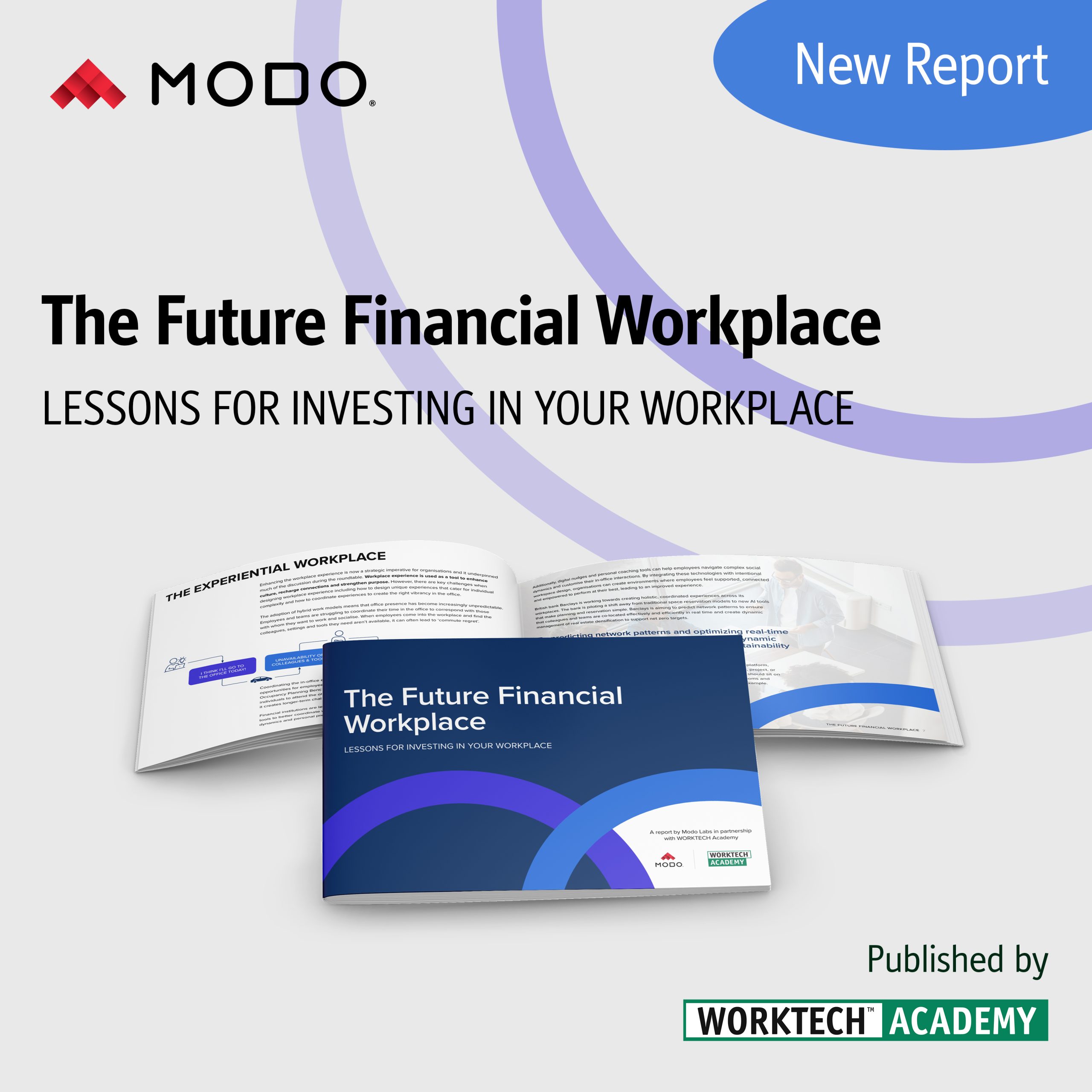Law firms embrace human-first, tech-enabled workplaces
As legal firms adapt to post-pandemic expectations, their workspaces are being reimagined to balance talent needs, digital transformation, and operational excellence.
Once defined by tradition and formality, law offices are now being recalibrated to support hybrid realities, shifting employee expectations, and the accelerating influence of AI.
On-demand webinar from Modo Labs, Rethinking the Workplace for Law Firms in the Era of Digital Transformation, highlights the opportunities and tensions law firms face as they navigate the future of work. Drawing on a roundtable of workplace, real estate and talent leaders, they surface emerging trends shaping the sector: human-centric design, digital fluency, experiential consistency, and strategic hybrid models.
Building relationships in hybrid settings
One of the biggest changes has been the shift in how law firms view the office. Where it was once a default location, it now needs to justify its value, especially for a new generation of associates who started their careers during the pandemic.
Marc Grainger, Chief People Officer at Debevoise & Plimpton, stresses the importance of in-person connection: ‘We do better work and provide better service when we’re together. The office is a forum for building relationships.’
Firms are designing spaces that support these interactions – from juniors learning beside partners to informal zones that encourage casual conversations. Creating environments that foster connection is now seen as essential.
Providing experiential value in the office
‘The law office used to be all physical,’ says Laurie Rothenberg, counsel at Pfizer. ‘Now it has to compete with home setups.’ That means offices must feel supportive, safe and easy to use. Beyond providing a desk, they need to support wellbeing and seamless collaboration.
Adam Stoltz of The Idea Kitchen notes that modern planning allows standardised layouts to be used differently – supporting teamwork, focus, or hybrid setups. There’s also growing demand for roles like Directors of Experience and Wellbeing, as firms acknowledge that emotional and social needs are part of the workplace equation.
Seamless experience is the key
Firms are investing in services that feel effortless. From meeting room tech to catering and support, the goal is to make the office experience smooth and consistent. ‘You don’t want people to notice how good it is,’ says Grainger. ‘It should just work.’
This also ties into talent retention. Providing spaces to rest, encouraging work-life integration, and removing friction from the working day all help employees feel supported and more likely to stay.
Rethinking time with AI optimisation
AI is becoming a key driver of workplace change. It’s helping reduce low-value, repetitive work for lawyers, allowing more time for complex tasks. It also enables better coordination across hybrid teams and faster insights into space usage and employee behaviour.
Looking ahead, AI’s potential to simulate and test workplace solutions is becoming a valuable asset.
The future-ready legal workplace
Despite their risk-averse roots, law firms are embracing people-led transformation. By aligning culture, technology and physical space, they are building workplaces fit for a hybrid, digitally driven future.
Watch the on-demand webinar here.








